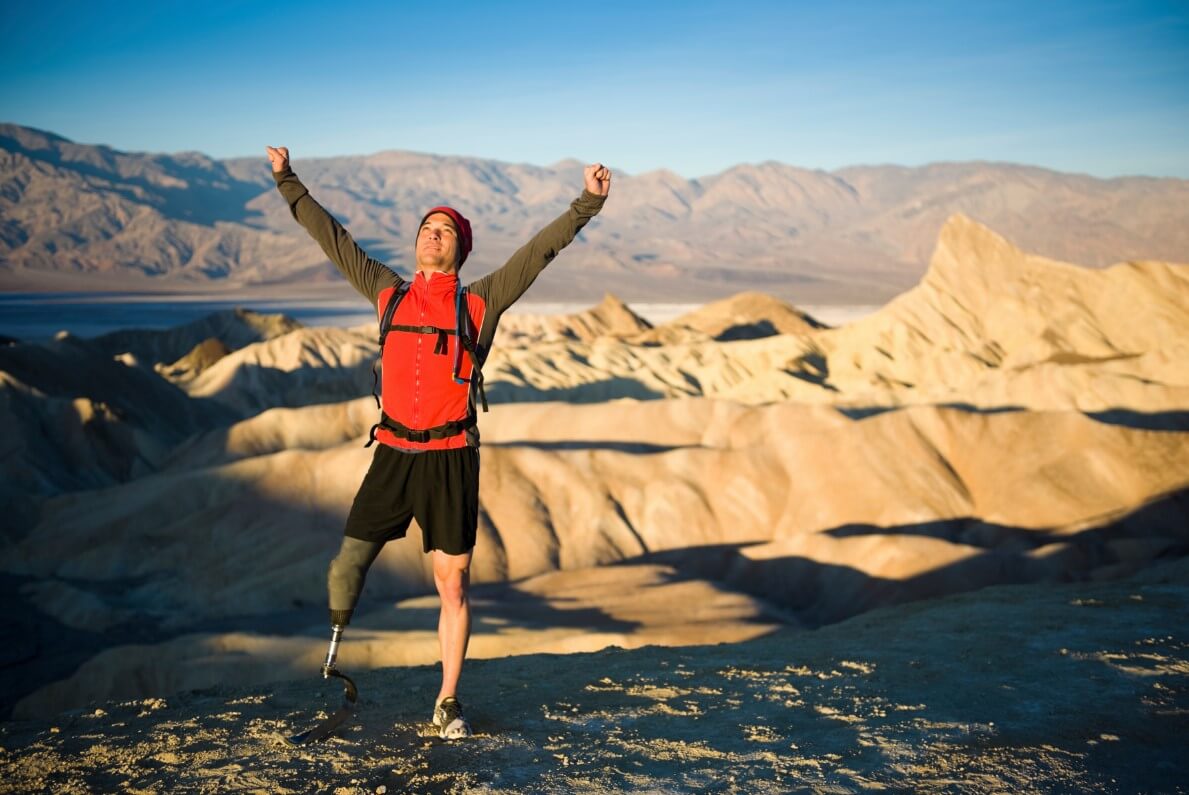Higher Ground
Wounded Warrior Veterans Program
In partnership with the Department of Defense, major military medical centers and veterans service organizations, Higher Ground serves men and women of the armed forces who have been severely wounded in Iraq and Afghanistan. The types of injuries SVAS specializes in include traumatic brain injuries, blindness, visual impairment, PTSD, spinal cord, amputations and severe burns.
The purpose of Higher Ground is to use sports and recreational activities as a means of healing, therapy and rehabilitation. The program offers four winter snowsports camps, one watersports camp, and two fly-fishing camps to more than 80 warriors and their significant others each year. Some of the more popular activities include alpine skiing, snowboarding, Nordic skiing, sled hockey, snowshoeing, ice skating, fly fishing, water skiing, wakeboarding, kayaking, whitewater rafting, horseback riding, mountain biking, canoeing, hiking and paragliding.

The goal is to build physical skills and confidence as well as to provide a fun, healthy and meaningful experience so warriors can more easily transition into new lives in their home communities. Camps, which last five to six days, are small, usually six or seven couples. In addition, one couple from the previous years camp is invited to return as mentors. Camps are 100 percent free for both the warrior and their spouse.
The small group setting creates a comfortable culture and friendly atmosphere to facilitate conversation and peer-to-peer bonding. Warriors open up and share their struggles and frustrations while spouses share their challenges about health care, parenting and their new roles as caregivers. Warriors leave the camps with a restored sense of independence, a renewed athletic spirit, a desire to improve work and school performance, a desire to improve family relationships, an increased ability to cope with combat related stress and a new set of friends.
To ensure the experience and therapy is sustainable, we connect warriors to sports and recreation organizations in their hometowns once they return. Our therapists also make regular follow-up calls, conduct assessments and provide on-going support and encouragement.